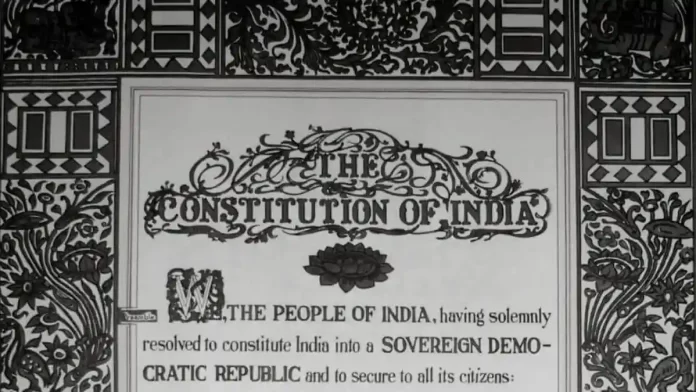Oxford dictionary describes secularism as a principle of separation of state from religious institutions.
This idea of secularism got prevalent in Europe after the Renaissance because of the turbulent relationship between two well-established institutions i.e. the Church and the State.
These two institutions entered a tacit understanding of not interfering in each other’s affairs.
But no such tacit or express agreement took place in India between the state and the religion.
The word Secular was inserted for the first in the preamble of the Indian constitution in 1976 through the 42nd amendment. Does that mean India was not secular before 1976?
Constitutional scholars have intensely debated the idea of Indian secularism since its inception.
It may be noted that constituent assembly explicitly negatived a proposal to add a non-establishment clause that explicitly proscribed the state from seeking to promote, patronize or establish any religion as state religion.
So what sort of secularism did the Indian Constituent Assembly want by rejecting the insertion of the word ‘Secular’ in the Indian constitution?
At the time of independence, many prominent Indian leaders claimed to have been deeply influenced by the idea of secularism yet they were cautious about its wholesale import into India due to varied reasons.
The prominent reason being state-sanctioned or state assisted reform of the Hindu Religion to overcome social evils like untouchability, caste system, subordination of women, etc.
They did not think it wise to leave Hinduism to its own peril given that the majority of Hindus were Shudras (lower castes) and were incapable of catching up with the rest of the society on their own because of their centuries old subordination and exploitation at the hands of the minority but dominant Hindu upper-castes.
Adopting European-style secularism in such a situation would have restrained the hands of the Indian state from initiating religious reforms amongst Hindus on a priority basis.
However, acclaimed constitutional scholar Rajeev Bhargava in his essay ‘The Distinctiveness of Indian Secularism‘ writes that this interference in Hindu Religion even if for social reforms may be interpreted both ways i.e. undermining or promoting Hinduism.
It is generally agreed that unlike Western Secularism, there is no strict wall of separation between state and religions under Indian Secularism.
India has generally followed the tradition of equal respect for all religions coupled with principled equidistance from all of them as well.
